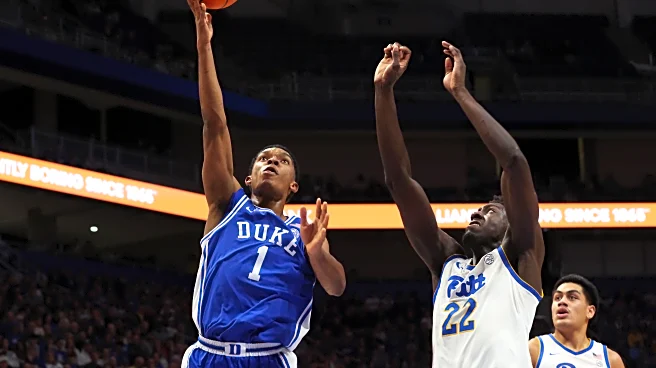What's Happening?
Bailey Smith, a prominent AFL player, has opened up about his mental health challenges following a severe ACL injury and personal breakup. During the 2025 AFL Awards night, Smith revealed that he spent four weeks in a mental health facility in 2024. The injury, sustained during a training session in December 2023, led to Smith missing the entire 2024 season, which marked the end of his time with the Western Bulldogs. He subsequently joined Geelong. Smith's admission highlights the psychological impact of sports injuries and personal setbacks, as he voluntarily sought help at Melbourne's Epworth Camberwell rehabilitation centre.
Why It's Important?
Smith's revelation underscores the significant mental health challenges faced by athletes, particularly when dealing with injuries that can affect their careers. His decision to seek professional help reflects a growing awareness and acceptance of mental health issues within the sports community. This development may encourage other athletes to prioritize their mental well-being and seek support when needed. It also highlights the importance of mental health facilities and support systems for athletes dealing with career-threatening injuries and personal issues.
What's Next?
Smith's experience may lead to increased advocacy for mental health resources in sports, encouraging leagues and teams to provide better support for athletes. As Smith continues his career with Geelong, his openness about mental health struggles could inspire other players to share their experiences, fostering a more supportive environment. The AFL and other sports organizations might consider implementing more comprehensive mental health programs to assist athletes in managing the psychological impacts of injuries and personal challenges.
Beyond the Headlines
Smith's story brings attention to the broader issue of mental health in sports, challenging the stigma often associated with seeking psychological help. It raises questions about the pressures athletes face and the need for a holistic approach to their well-being, including mental health support. This could lead to cultural shifts within sports organizations, promoting a more balanced view of athlete health that includes mental and emotional aspects.










